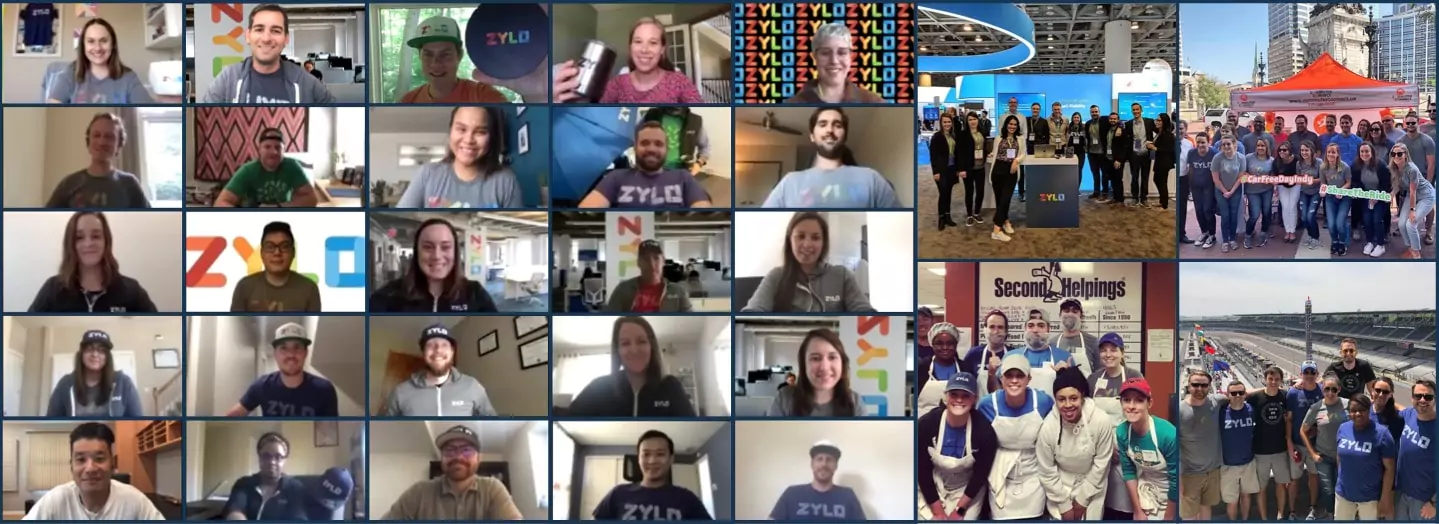
An Inside Look at Zylo’s Engineering Team
There’s never been a more exciting time to be an engineer...
Back
Back
Search for Keywords...
Zylife Blog

03/27/2020
Ryan Carman studied mechanical engineering before taking on business and data analysis roles in the energy sector. Since joining Zylo, Ryan has worked as a data analyst and recently took on a new challenge as a product manager helping design new and innovative ways of analyzing data within the Zylo SaaS management platform.
I was first drawn to mechanical engineering because of its foundational and technical role in many industries. I knew, at some point in my early career, I wanted to be an entrepreneur. In support of that, I wanted to get business experience in an industry where my mechanical engineering background would prove beneficial.
The energy industry served just that, and upon graduating from college, I started in a business analyst role developing market strategies and modeling financial outcomes for capital investments.
I’m biased, but I think analyst positions, both business analysis and data analysis, build core skills needed in Product Management. At the heart of both roles is problem-solving, and in today’s world of data everywhere, making sense of all the entangled data is a prerequisite to identifying problems, testing assumptions, and developing solutions.
In contrast, the problem space for analyst roles is focused and deep, while that of a Product Manager tends to be broad and ambiguous.
For me personally, I’ve found that the more solid the relationship is between my individual efforts and impact in the broader business, the happier and more fulfilled I am. The attraction to a startup was the opportunity to jump in and make a meaningful impact from Day 1. When the team is lean, and the challenges are infinite, there are endless opportunities to make a huge impact and help shape the future of the company.
I’ll quickly cut to the business outcome because it’s where most of the lessons were learned: It failed.
There’s something about startup failure that feels different than other failures; maybe it’s the all-encompassing nature of it. But experiencing this failure was the most important lesson. It’s easy and natural to associate one’s identity to the outcome of failure, but that’s a poisonous mindset.
Learning how to separate outcomes from identity and objectively analyze the process and personal flaws are probably the most important lessons I’ve learned.
Focus on process over identity (success/failure). It’s surprising the degree we overestimate how much we can do in a day, and underestimate what we can do in a year. Break problems down, take small steps, and course-correct as needed.
It’s almost always helpful to approach problems (not just technical ones) from a systems thinking point of view: What are the inputs to the system? What are the boundaries, what are the outputs?

There’s never been a more exciting time to be an engineer...

As we enter 2021 with a greater awareness of the daunting...


With our interest to keep the health of our team, families,...
| Cookie | Duration | Description |
|---|---|---|
| cookielawinfo-checkbox-analytics | 11 months | This cookie is set by GDPR Cookie Consent plugin. The cookie is used to store the user consent for the cookies in the category "Analytics". |
| cookielawinfo-checkbox-functional | 11 months | The cookie is set by GDPR cookie consent to record the user consent for the cookies in the category "Functional". |
| cookielawinfo-checkbox-necessary | 11 months | This cookie is set by GDPR Cookie Consent plugin. The cookies is used to store the user consent for the cookies in the category "Necessary". |
| cookielawinfo-checkbox-others | 11 months | This cookie is set by GDPR Cookie Consent plugin. The cookie is used to store the user consent for the cookies in the category "Other. |
| cookielawinfo-checkbox-performance | 11 months | This cookie is set by GDPR Cookie Consent plugin. The cookie is used to store the user consent for the cookies in the category "Performance". |
| viewed_cookie_policy | 11 months | The cookie is set by the GDPR Cookie Consent plugin and is used to store whether or not user has consented to the use of cookies. It does not store any personal data. |